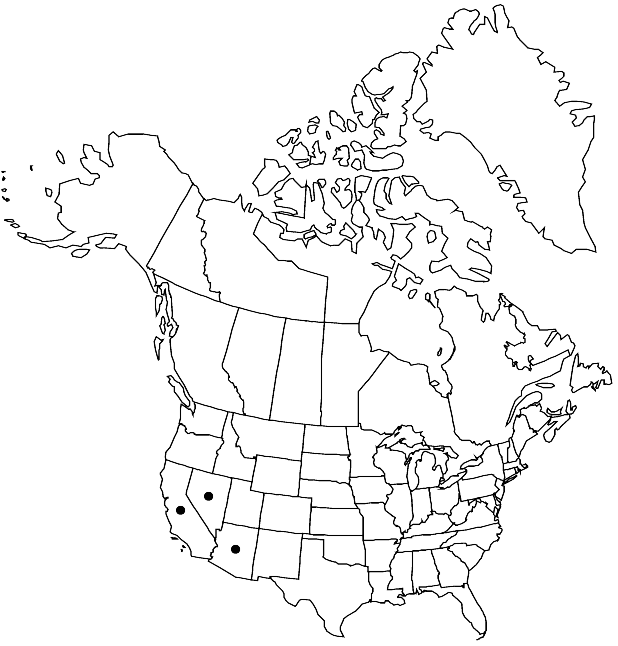Stanleya elata
Zoë 2: 16. 1891.
Perennials; (short-lived); (glaucous), mostly glabrous. Stems erect, unbranched or branched (few) proximally and distally, 6–15(–18) dm, (weakly striate). Basal leaves (withered by flowering); similar to cauline. Cauline leaves: petiole 3–9(–12) cm; blade broadly lanceolate or oblong to ovate, (5.5–)8–21(–26) cm × 20–80(–130) mm, (leathery, smaller distally), margins entire or, rarely, with small lobes just proximal to blade, (surfaces rarely sparsely pilose abaxially). Racemes dense. Fruiting pedicels slightly reflexed to horizontal or divaricate, (5–)7–11(–15) mm. Flowers: sepals linear, 7–11 mm, (sometimes sparsely pilose); petals whitish to lemon yellow, linear, 8–13 × 0.3–1 mm, claw (thickened), 4–7 mm, slightly wider at base; filaments 5–13 mm, papillate basally; anthers 2.5–4 mm; gynophore 7–20 mm. Fruits spreading to curved downward, slightly curved, subterete, 4–9(–10.5) cm × 1.5–2 mm; ovules 46–70 per ovary; style 0.2–1.5 mm. Seeds oblong, 1.5–2.6 × 1–1.3 mm. 2n = 28.
Phenology: Flowering May–Jul.
Habitat: Sandy or gravelly soil in sagebrush and mixed shrub communities, desert scrub, decomposing granite
Elevation: 1200-2000 m
Distribution

Ariz., Calif., Nev.
Discussion
Stanleya elata is distributed from Coconino County in Arizona, to Inyo and Mono counties in California, and Churchill, Clark, Esmeralda, Lincoln, Lyon, Mineral, and Nye counties in Nevada.
Selected References
None.